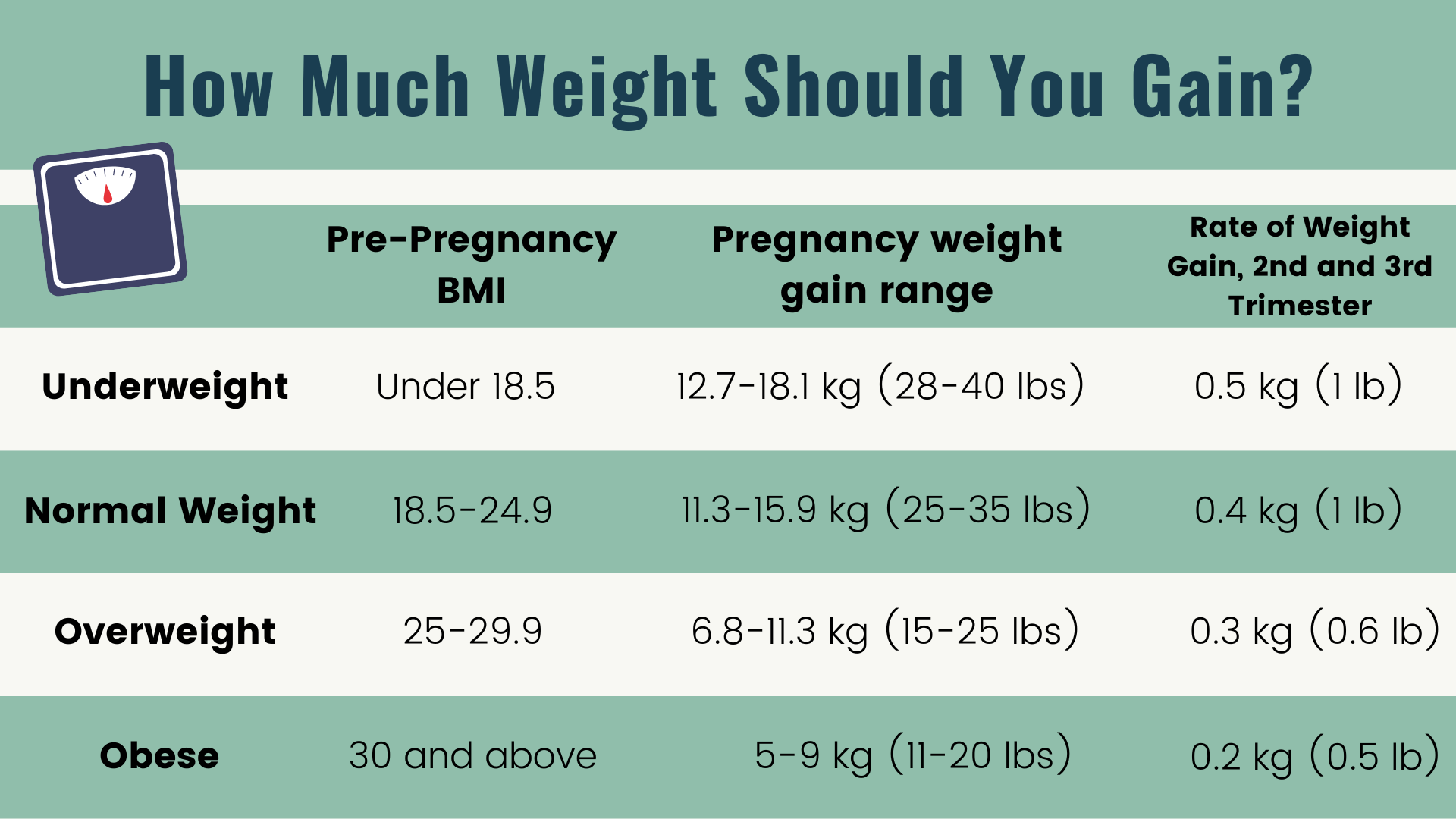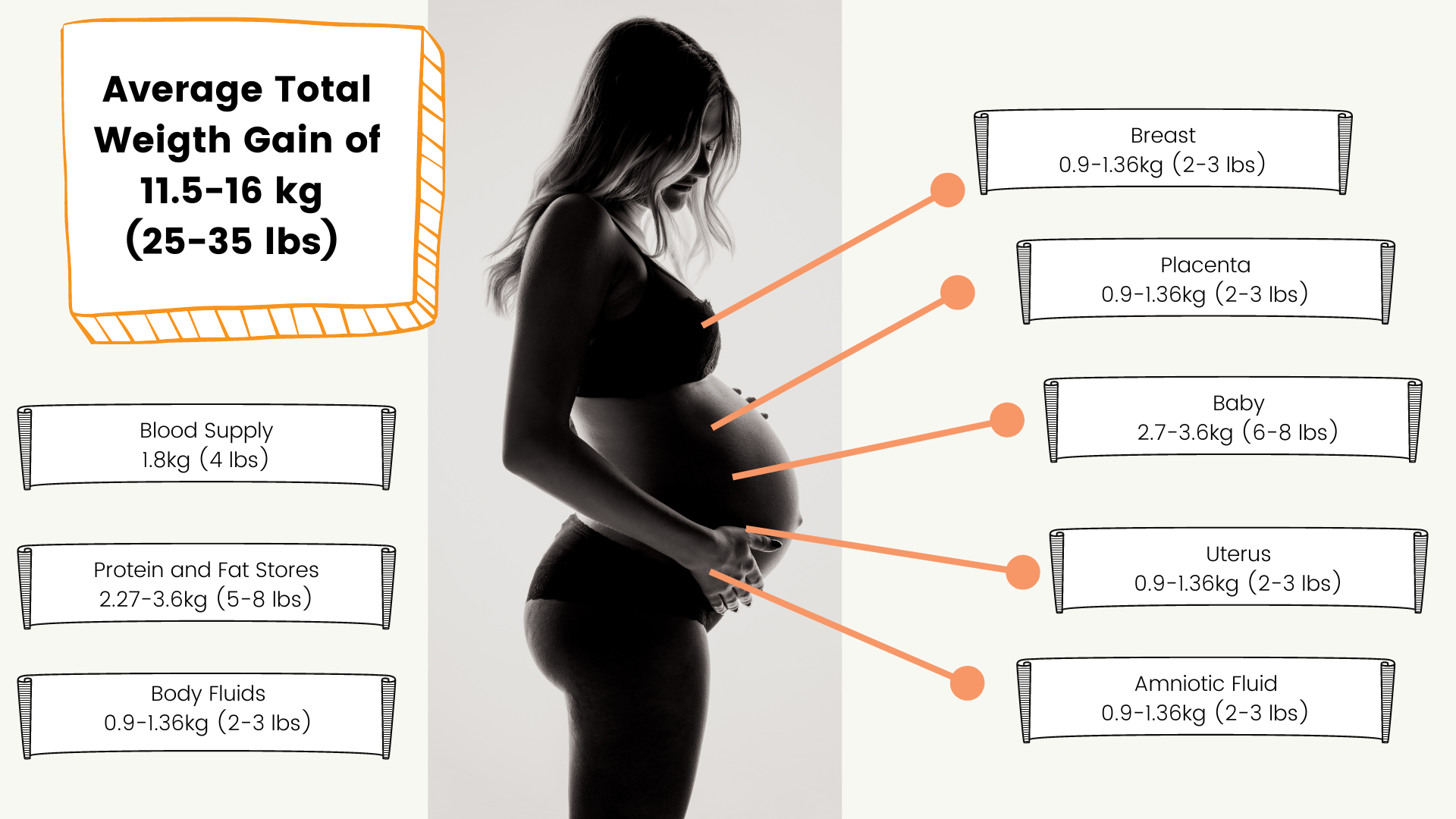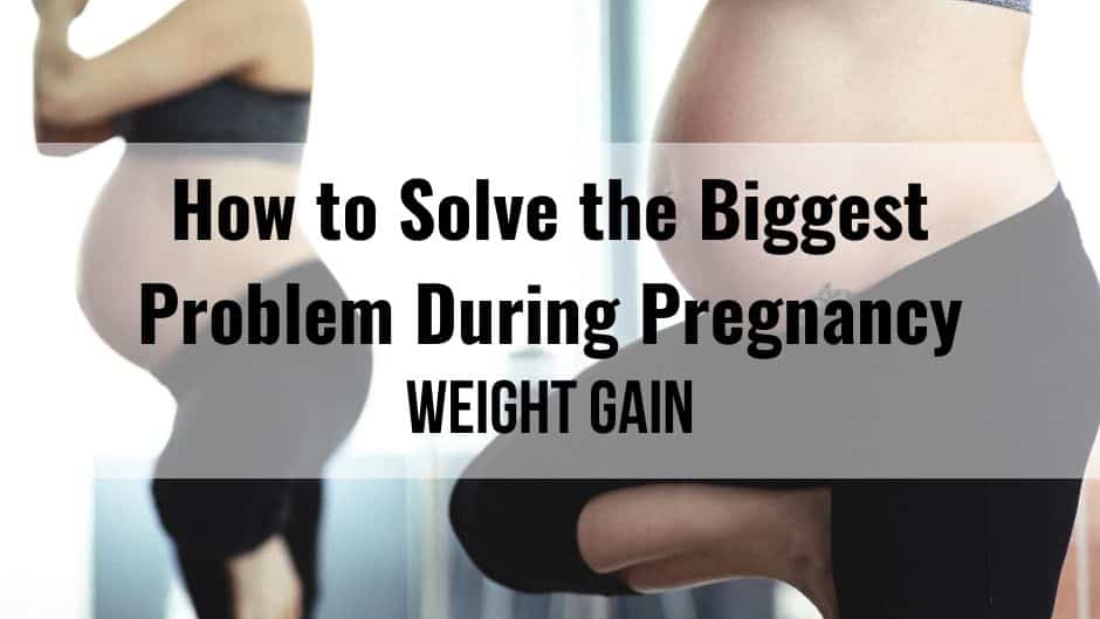Weight gain during pregnancy is a hot topic and commonly discussed in parenting or women’s health magazines. Most women who are planning to conceive or pregnant are unsure as to how much weight they should safely gain during this period. Today, I am going to give you some nutrition tips and guidance to reduce your stress.
Weight gain is an important part of pregnancy. The recommended amount of weight gain during pregnancy depends on your Body Mass Index (BMI) before pregnancy. Knowing the range of weight gain that’s right for you will help you gain enough weight without gaining too much.
You can find out your pre-pregnancy BMI by:
- Using an online calculator
- Using the following formula: BMI = weight (kg) / height (m2)
- Talking to your healthcare provider or Dietitian
The table below will help you find out how much weight gain will be healthy for you and your baby.

If you were overweight, you need to gain less weight. If you were underweight or you are having twins or triplets, you need to gain more weight. Talk to your doctor, dietitian or nurse about the right weight gain for you.
WHERE IS THE WEIGHT GOING?
Most women need to gain about 11.5 – 16 kg in pregnancy. It’s common to gain very little weight in the first trimester. In second and third trimesters a gradual increase of about 0.5 kg a week is normal since the baby and supporting tissues continue to grow.

IF YOU GAIN TOO MUCH WEIGHT
Women who gain too much weight tend to have:
- More difficulty giving birth
- Babies who are born large for their age or who have a high birth weight (more than 4.1 kg)
- Babies who have problems with being overweight or obese later in childhood
- More troubles losing weight after pregnancy
- Increased risk of high blood sugar and high blood pressure during pregnancy
IF YOU GAIN TOO LITTLE WEIGHT
Women who don’t gain enough weight tend to have:
- Babies who are born early
- Babies who are born small for their age or who have a low birth weight (less than 2.5 kg)
HEALTHY EATING TIPS DURING PREGNANCY
Consuming a well balanced and varied diet will help ensure you consume food sources of folic acid, iron and calcium, which are especially important nutrient during pregnancy.
Eat “twice as healthy”, not “twice as much”
- Eating every 2-4 hours while awake gives your growing baby a steady supply of nutrients. It may also help you feel better if you’re having trouble with nausea.
- Avoid skipping meal. Skipping meals makes it hard for you and your baby to get all of the nutrients you both need.
- Take a prenatal multivitamin every day.
- Avoid foods which may be contaminated by bacteria.
- Aim for 3 meals a day with healthy snacks in between.
- First trimester: No extra calories. Normal healthy eating.
- Second trimester: About 350 extra calories per day.
- Third trimester: About 450 extra calories per day.
- Breastfeeding: 350-400 extra calories per day.
Here are some examples of snacks that contain about 350 kcal:
- Yogurt parfait – 3/4 cup yogurt, 1/2 cup berries, 1/2 cup granola
Here are some example of snacks that contain about 450 kcal:
- 1 slice of whole wheat toast with 1 tbsp of natural peanut butter, 1 banana and 1 cup of milk
It is not recommended to lose weight or follow a weight loss diet during pregnancy.
BOTTOM LINE
Eating a healthy diet and staying active when pregnant ensures you and your baby receive the nutrients you need while maintaining healthy weight gain. If you look and feel healthy, just give yourself a break. One of the joys of pregnancy is be able to unbeaten those jeans and glory in the elastic waistband. There is no point in sucking in your stomach, or squeezing into a cocktail dress, or trying to look good in a bathing suit. You’ve got a bump, and that’s just how it is.
So, You’re having a baby? Contact Me, I can help you meet the nutrition needs of both you and your growing baby.


Leave A Comment